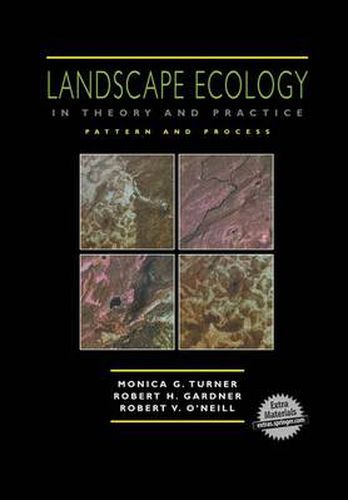Readings Newsletter
Become a Readings Member to make your shopping experience even easier.
Sign in or sign up for free!
You’re not far away from qualifying for FREE standard shipping within Australia
You’ve qualified for FREE standard shipping within Australia
The cart is loading…






This is a new text aimed expressly at the student taking a course in landscape ecology, written by very well-known practitioners and pioneers in this new field of ecological analysis. Landscape ecology has emerged during the past two decades as a new and exciting level of ecological study. Environmental problems such as global climate change, land use change, habitat fragmentation and loss of biodiversity have required ecologists to expand their traditional spatial and temporal scales and the widespread availability of remote imagery, geographic information systems, and desk top computing has permitted the development of spatially explicit analyses. In this new textbook this new field of landscape ecology is given the first fully integrated treatment suitable for the student. Throughout, the theoretical developments, modeling approaches and results, and empirical data are merged together, so as not to introduce barriers to the synthesis of the various approaches that constitute an effective ecological synthesis. The book also emphasizes selected topic areas in which landscape ecology has made the most contributions to our understanding of ecological processes, as well as identifying areas where its contributions have been limited. Each chapter features questions for discussion as well as recommended reading.
$9.00 standard shipping within Australia
FREE standard shipping within Australia for orders over $100.00
Express & International shipping calculated at checkout
This is a new text aimed expressly at the student taking a course in landscape ecology, written by very well-known practitioners and pioneers in this new field of ecological analysis. Landscape ecology has emerged during the past two decades as a new and exciting level of ecological study. Environmental problems such as global climate change, land use change, habitat fragmentation and loss of biodiversity have required ecologists to expand their traditional spatial and temporal scales and the widespread availability of remote imagery, geographic information systems, and desk top computing has permitted the development of spatially explicit analyses. In this new textbook this new field of landscape ecology is given the first fully integrated treatment suitable for the student. Throughout, the theoretical developments, modeling approaches and results, and empirical data are merged together, so as not to introduce barriers to the synthesis of the various approaches that constitute an effective ecological synthesis. The book also emphasizes selected topic areas in which landscape ecology has made the most contributions to our understanding of ecological processes, as well as identifying areas where its contributions have been limited. Each chapter features questions for discussion as well as recommended reading.